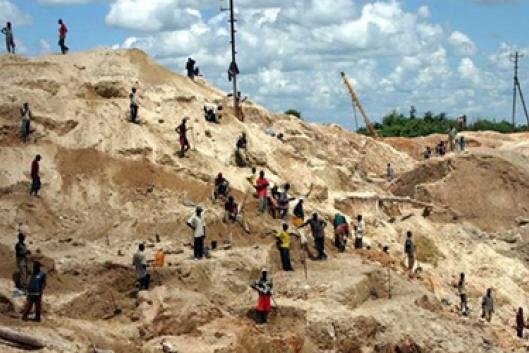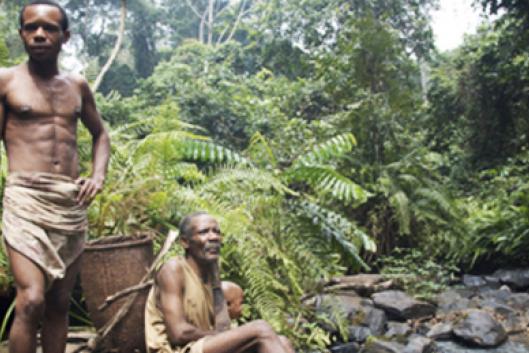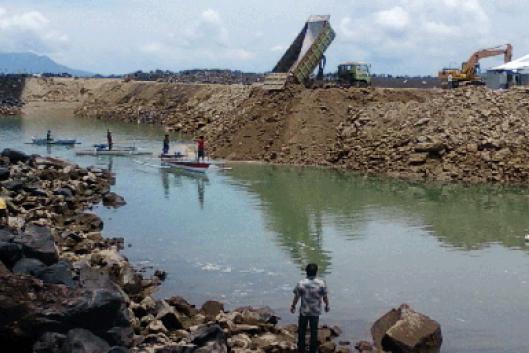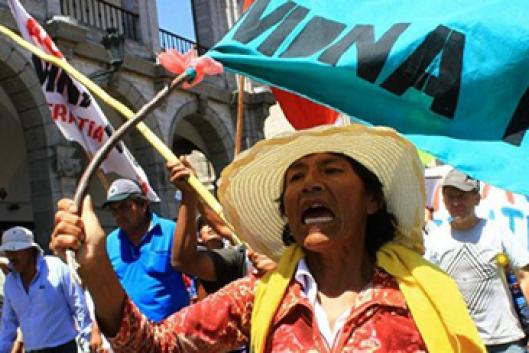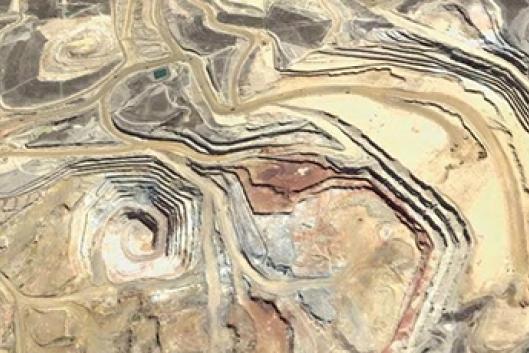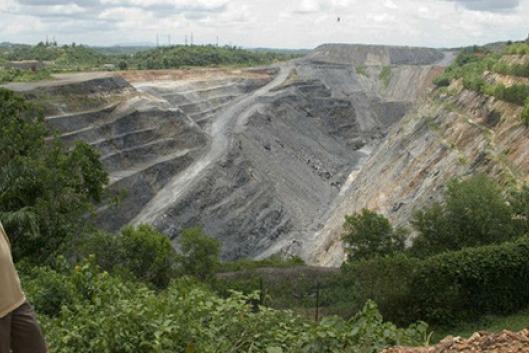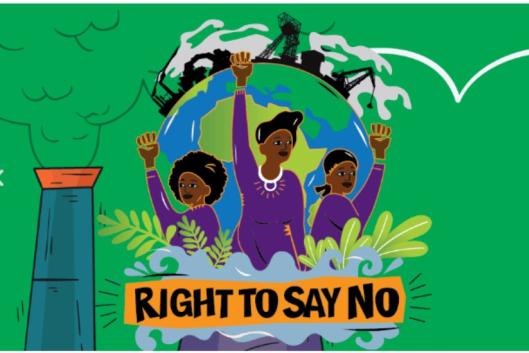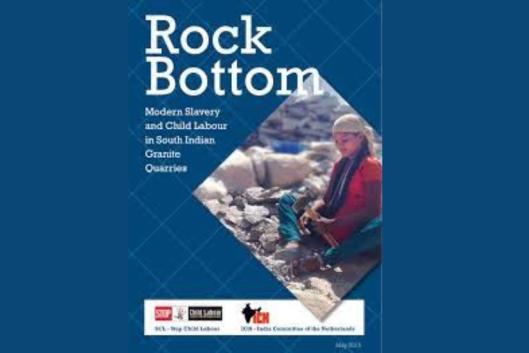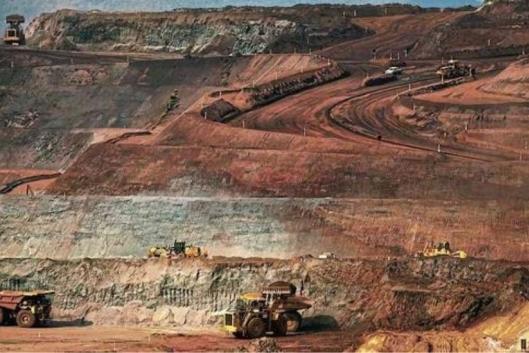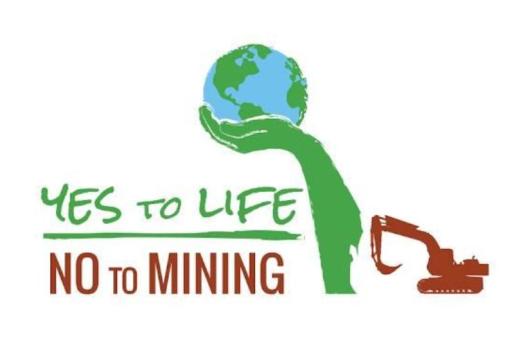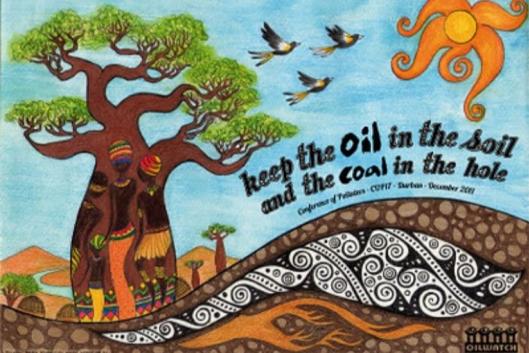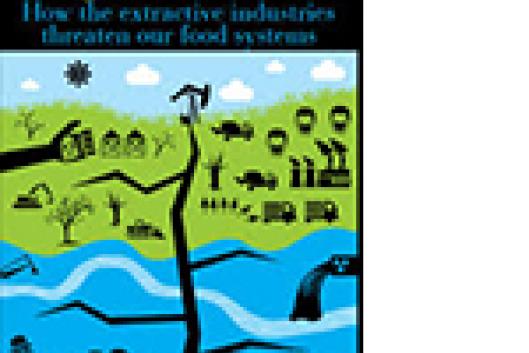Bulletin Issue 215 – June 2015
Mining in expansion: destruction of territories, resistance struggles and criminalization
WRM Bulletin
215
June 2015
OUR VIEWPOINT
MINING IN EXPANSION:
DESTRUCTION OF TERRITORIES, RESISTANCE STRUGGLES AND CRIMINALIZATION
-
10 July 2015It’s no news that extractive projects throughout Latin America have imposed a model of extraction and export that reaches ever deeper. The race for attracting investments from the mining, oil, forestry and fishery industries is a feature of most countries in the region. However, the extractive industry sparks increasingly strong criticism and resistance from several sectors of society, including academia, human rights organizations and social movements.
-
10 July 2015Currently, the mining sector is one of the main engines of the world´s economic system. In several countries, expropriation cases from native populations are recurrent, including loss of territory, disintegration of community solidarity bonds, pollution of territories and water sources, exploitation of workers, and criminalization of groups who dare to withstand large corporations.
PEOPLES IN ACTION
-
10 July 2015Coal kills people. Coal destroys health and communities’ well being. Coal devastates land, water and ecosystems and Coal is destroying our planet. These are the conclusions of the “Women stand their ground against Big Coal” meeting that took place in Johannesburg, South Africa, on January 2015. The meeting, convened by “WoMin: African Women United Against Destructive Extractivism” alliance, gathered nearly two dozen organisations with more than fifty women grassroots activists and leaders from the Southern African Region. It declared that “Women are the ones who grow and put food on the table.
-
10 July 2015India is the second largest exporter of granite, much of which ends up on the European market. The main buyers of granite are the construction sector, the funeral industry and the retail sector (kitchen countertops, garden ornaments, etc.) However, most importers of Indian granite give no information from which quarries they are sourcing their granite or say they do not know from which quarries the stone comes from.
-
10 July 2015Members of African and UK civil society and communities sent a letter to the “Mining on Top Africa: London Summit” – a decisive conference on African mining for Europe that took place on June 24 and 25 - accentuating how the introduction of large-scale mining in Africa has made many communities to face displacement, poverty, illness, massive pollution, loss of fertile agricultural and ancestral land, destruction of livelihoods and culture.
-
10 July 2015Conceived in 2012 by a group of individuals, organisations and networks, the “Yes to Life, No to Mining” movement is committed to take action against the increasingly devastating impact of the mining industry. They seek to connect communities saying NO to mining across the planet in order to collaborate through solidarity and support one another to stand firm. Through the website, they share useful materials and provide a space through which they share stories of resistance, success and struggle. They invite communities and groups to make a pledge, post a photo, video or message in solidarity, share stories of resistance and connect with affected communities directly.
-
10 July 2015Members of Oilwatch Africa network met in Lome, Togo, on 9 June 2015, to discuss the implications of the world’s dependence on fossil fuels on climate, food sovereignty, nutrition and well-being in Africa. The conference particularly examined the environmental and socio-economic impacts of oil, gas and coal extraction, as well as the impacts on food production, water pollution, deforestation and the growing trend of land grabbing on the continent.
RECOMMENDED
-
10 July 2015The “Weaving Resistances” project, from the Organization "Democracy and Global Transformation Program" in Peru, shares three videos that are testimony to a constant and courageous struggle of, especially, women from the provinces of Celendin, Bambamarca and Cajamarca in Peru's northern highlands. These lands have seen a resistance of over three years to the mega mining project “Conga”, from the Peruvian company Yanacocha, associated with Compañía de Minas Buenaventura, the US company Newmont Mining Corporation and the International Finance Corporation (IFC) of the World Bank.
-
10 July 2015A recently released documentary exposing the world's largest iron ore mining project shows the life of the communities impacted by the “Programa Grande Carajás” (Great Carajás Programme), located in the Brazilian states of Maranhão and Pará. In this region, people affected by mining projects are supported by the Justice on Rails Network, a coalition of impacted communities, organizations, pastoral groups, social movements and academic research groups seeking environmental justice in northern Brazil.
-
10 July 2015A database called “From Money to Metals” gathers data on commercial and private institutions that aim to profit from mineral extraction and processing. The database examines the background, investment and management strategies of some 900 banks, private funders, insurance companies, hedge funds and private equity firms, as well as some individuals, that have provided financial stimulus to numerous mining companies. Access the database at: http://moneytometal.org/index.php/From_Money_to_Metal
-
10 July 2015A film from “The Source Project” looks at how communities in the Karamoja region of Uganda have been organising along with the Uganda Land Alliance to ensure that their communal land rights are respected, in the face of large-scale land acquisitions for mineral exploitation. You can see the video here:
-
10 July 2015Minerals of all different kinds (there could be more than 10 varieties in one Smartphone alone) are mined in different countries - from tantalum in the Congo to tin in the Philippines -, then shipped or trucked around the planet to manufacturing hotspots. It is estimated that mining activities will triple worldwide by 2050, spreading into more forests and coastal areas, indigenous territories, nature parks and protected sites. These land grabs happen largely without the consent of local communities, as governments and corporations collude to bypass the rights of the people.
-
10 July 2015A recent report from the GAIA Foundation and allies exposes how the world's food production and millions of small farmers and communities are under increasing threat from the rapid expansion of mining. The report looks at: “the real impact of mining - from prospecting and operations right through to closure - on agriculture, food production, soil fertility, fresh water systems, the air that we breathe, and our already challenged climate. Without healthy ecosystems there can be no healthy food. Without water there can be no life.”
